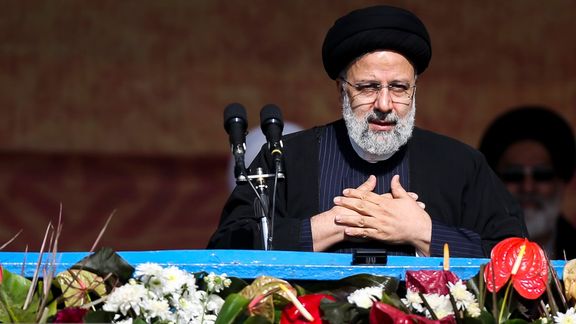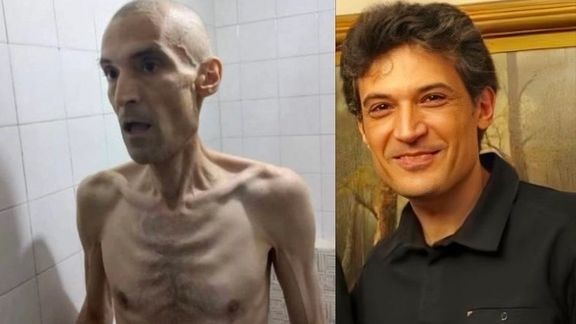Iran’s President Makes A Vague Promise Of Freeing More Prisoners

Finding itself under pressure, the Islamic Republic may be ready to make some concessions to protesters at home and to Western countries whose citizens are held hostage in Tehran.

Finding itself under pressure, the Islamic Republic may be ready to make some concessions to protesters at home and to Western countries whose citizens are held hostage in Tehran.
Reports from Tehran say that French-Iranian dual national academic Fariba Adelkhah has been released from jail. Adelkhah was sentenced to five years in 2020 on national security charges that she denied. Reports say that there are still several other French nationals in jail in Iran who are in essence Iran's hostages.
For decades, the Islamic Republic has been arresting foreigners and dual nationals on vague and trumped-up charges, keeping them in prison until it can make a deal with Western countries either for money, diplomatic concessions or freeing its agents convicted abroad.
Speaking on the anniversary of the 1979 Islamic revolution Foreign Minister Hossein Amir-Abdollahian told an NPR correspondent that an agreement to swap dual national prisoners with the United States is on the table.
He said that releasing Iranian-American Siamak Namazi is pending some technical measures on the part of the United States. However, he did not elaborate on the nature of those measures.
Amir-Abdollahian also tried to sound optimistic on the nuclear issue, as Iran finds itself under more isolation and the pressure of sanctions. He said that there is still a window of opportunity for all sides to return to the JCPOA.
Meanwhile, the violation of human rights by the Iranian regime during recent protests, and Tehran's involvement in Moscow's war against Ukraine have made the situation more complicated, making it difficult for the United States and Europe to make a deal with Iran.
On the domestic front, while according to political activists only around 150 of the prisoners "pardoned" by Supreme Leader Ali Khamenei were actually released from jail until Friday, reports came in Saturday morning about more political prisoners being released from detention.

One of them was Farhad Meysami, whose heart-wrenching pictures were released last week following a long hunger strike. Meysami who was sentenced to five years in jail, was freed only four months before the end of his sentence.
While reports in Tehran indicated that President Ebrahim Raisi was going to make a “very important” announcement in his revolution anniversary speech on Saturday, his remarks contained nothing other than the usual unfounded claims about the Islamic Republic being the top power in the region, having achieved great success in many areas.
After the speech however, Iranian media sources quoted Raisi as having said that all students, cultural and athletic figures and media activists in jail are also going to be pardoned. Raisi tried to portray the amnesty as a measure championed by his government rather than the Iranian Judiciary Chief, Gholam-Hossein Mohseni Ejei, who had called for a partial amnesty.
More than 90 Iranian journalists and a dozen athletes are said to have been detained during the protests since September, and many have already been released.
It is still not clear how many of the "tens of thousands" of prisoners who were to be freed based on Ejei's request are still remaining in jail and how many have been released.
Raisi’s promise to release more detainees was also vague. He did not mention how many prisoners would be included in the amnesty. However, he said the "fatherly amnesty" is a measure to confront the enemies who sow discord in Iran.
He also promised that the government is planning to facilitate the return of Iranians living abroad including those who have possibly acted against the law, but declined to elaborate. He only said that people will be notified of the measures "soon".